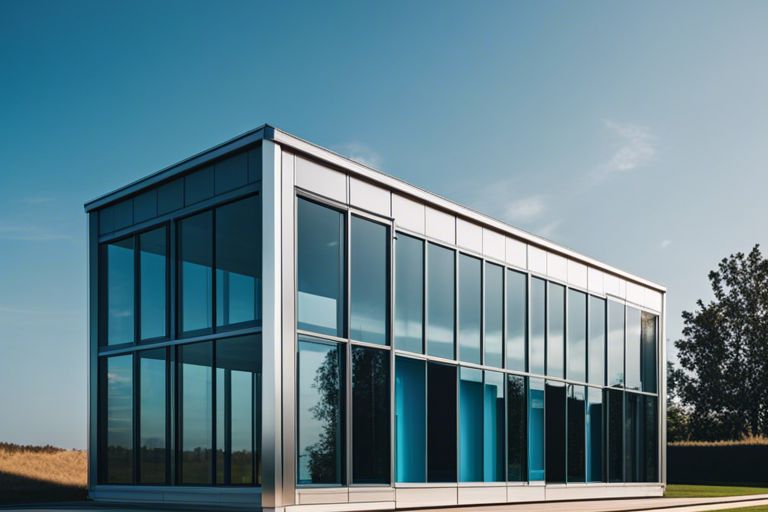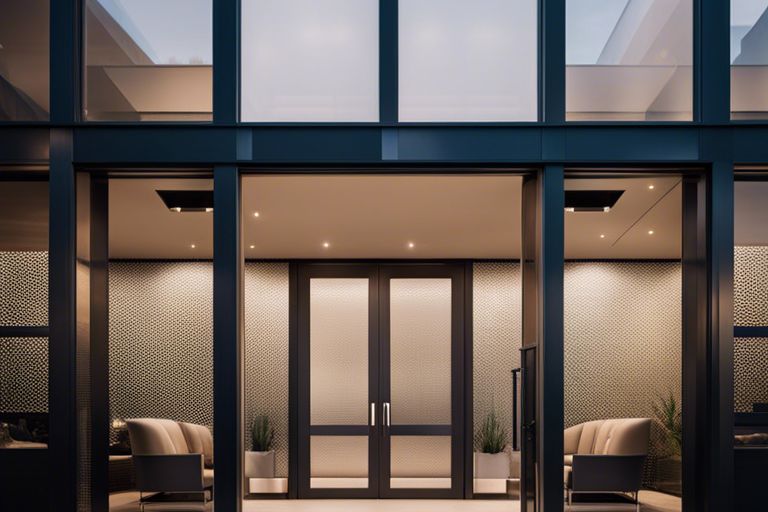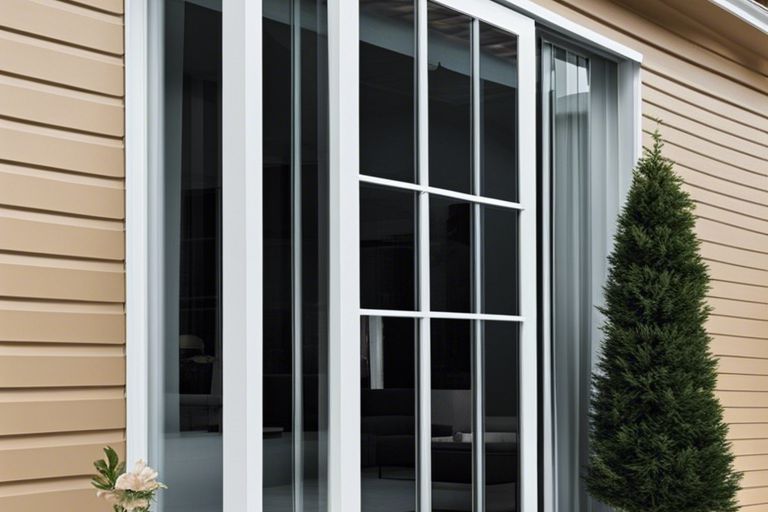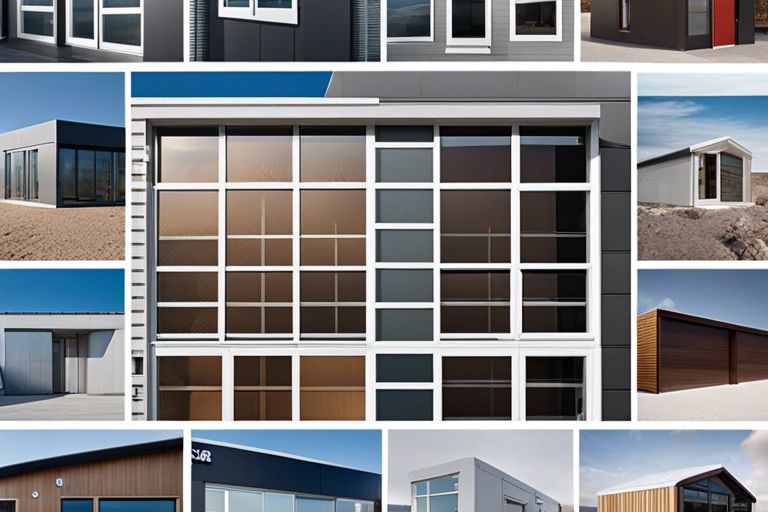Are you looking to decrease your energy bills while making your home more eco-friendly? Aluminium windows are a great choice for improving the energy efficiency of your home. Their low maintenance, durable nature makes them a perfect option for your windows. In this guide, we will discuss the energy efficiency of aluminium windows and provide you with tips on how to maximize it. By following the advice in this article, you can make sure that your aluminium windows are performing at their best, helping you save money and reducing your carbon footprint.
Key Takeaways:
- Aluminium windows can be highly energy efficient when designed and installed properly.
- Proper installation by a professional is crucial to maximizing the energy efficiency of aluminium windows.
- Utilizing double or triple glazing can significantly improve the energy efficiency of aluminium windows.
- Regular maintenance such as weather-stripping and caulking is essential for preserving the energy efficiency of aluminium windows.
- Using thermal breaks in the window frames can help reduce heat conduction and enhance energy efficiency.
- Consider solar control coatings to reduce heat transfer through the glass and further improve efficiency.
- Properly sized and strategically placed windows can also help maximize energy efficiency in a building.
Types of Aluminium Windows
Some types of aluminium windows that you can consider for your home include:
- Awning Windows
- Sliding Windows
- Fixed Windows
- Louvre Windows
- Bi-fold Windows
Perceiving the various aluminium window types available can help you make an informed decision when it comes to selecting the best solution for your home.
Fixed vs. Operable Windows
When it comes to choosing between fixed and operable aluminium windows, it’s important to consider your ventilation needs and energy efficiency. Fixed windows are permanent fixtures that do not open, which means they are less prone to air leakage; meanwhile, operable windows can provide flexibility in controlling airflow. Your choice will depend on your specific requirements.
Single, Double, and Triple Glazing Options
When it comes to glazing options for aluminium windows, you have the choice of single, double, or triple-glazed windows. Single glazing offers basic insulation while double and triple glazing provide increased energy efficiency and noise reduction benefits. Making the right choice for your glazing needs will impact the overall performance of your aluminium windows.
Factors Affecting the Energy Efficiency of Aluminium Windows
Clearly, when it comes to energy efficiency in your home, the type of windows you choose plays a significant role. Aluminium windows are a popular choice due to their durability and sleek appearance, but there are several factors that can affect their energy efficiency. Here are some key considerations to maximize the energy efficiency of your aluminium windows:
- Proper Installation: Ensuring that your aluminium windows are installed correctly is crucial for energy efficiency. Poor installation can create gaps and air leaks that allow heat transfer.
- Thermal Breaks: These interruptions in the metal conductivity help to reduce heat transfer and improve energy efficiency.
- Frame Design and Material: The design and material of the window frame can greatly impact its energy efficiency, affecting insulation and thermal performance.
Any Increasing Energy Efficiency with Aluminium Double Glazing potential homeowner should consider these factors when selecting aluminium windows for their property to ensure maximum energy efficiency.
Thermal Breaks and Their Importance
When it comes to the energy efficiency of aluminium windows, the presence of thermal breaks is crucial. These breaks in the metal create a barrier that reduces heat transfer between the interior and exterior of your home. This feature significantly enhances the insulation properties of aluminium windows, making them more energy efficient and helping you conserve energy and reduce your heating and cooling costs.
Frame Design and Material Considerations
Another essential factor affecting the energy efficiency of aluminium windows is the frame design and material. The design of the frame and the material used can impact the window’s insulation properties and thermal performance. Opting for advanced frame designs and high-quality materials can significantly improve the energy efficiency of your windows, ensuring that your home remains comfortable while minimizing energy loss.
Step-by-Step Guide to Maximizing Aluminium Window Efficiency
Unlike other window materials, aluminium windows offer great energy efficiency when properly installed and maintained. To maximize the efficiency of your aluminium windows, follow the step-by-step guide below:
| Step 1 | Regularly clean and maintain the frames and seals to ensure optimal performance. |
| Step 2 | Install low-emissivity (Low-E) glass to reduce heat transfer and UV rays. |
| Step 3 | Use thermal breaks or insulating spacers to improve the window’s thermal performance. |
| Step 4 | Consider adding exterior shading devices to reduce solar heat gain. |
Selection Tips for High Performance Windows
When selecting high-performance aluminium windows for your home, it’s important to consider certain factors. Choose windows with thermal break technology to minimize heat transfer and reduce condensation. Look for windows with a low U-factor and solar heat gain coefficient to improve efficiency. Additionally, consider multi-point locking systems to enhance security and insulation. When evaluating the glass, opt for Low-E coatings and argon gas fills for better insulation.
- Though it may be tempting to focus solely on aesthetics, prioritize performance and energy efficiency when selecting your aluminium windows.
Installation Methods to Prevent Energy Loss
Proper installation is crucial in preventing energy loss through aluminium windows. Ensure that the windows are installed by certified professionals who follow the manufacturer’s guidelines. Properly seal all gaps and seams to prevent air infiltration. Consider using expanding foam insulation to fill any voids between the window frames and the wall. Additionally, utilize weatherstripping around the window frames to create a tight seal and prevent drafts.
Pros and Cons of Aluminium Windows
Not all windows are created equal, and there are both advantages and disadvantages to consider when choosing aluminium windows for your home. Here are the key pros and cons of aluminium windows:
| Pros | Cons |
| Durable and long-lasting | High thermal conductivity |
| Low maintenance | Prone to condensation |
| Modern and stylish appearance | Relatively expensive |
| Excellent strength-to-weight ratio | Poor insulation properties |
| Recyclable and sustainable | Potential for corrosion |
| Good security features | Less design flexibility compared to other materials |
Advantages in Energy Efficiency and Sustainability
When it comes to energy efficiency, aluminium windows offer several benefits. The material is highly recyclable, making it an environmentally friendly choice for your home. Additionally, aluminium windows can be coated with thermal break technology, improving their insulation properties. This means that you can enjoy a comfortable indoor environment while reducing your energy consumption and carbon footprint.
Potential Drawbacks and How to Mitigate Them
While aluminium windows have many advantages, there are also potential drawbacks to consider. The high thermal conductivity of aluminium can lead to heat loss in your home, especially if the windows are not properly insulated. To mitigate this, you can opt for double or triple glazing and thermal break technology to improve the energy efficiency of your aluminium windows. Additionally, regular maintenance and proper ventilation can help prevent condensation and corrosion issues, ensuring the longevity of your windows.

Maximizing the Energy Efficiency of Aluminium Windows
Upon reflecting on the energy efficiency of aluminium windows, it is clear that there are several measures you can take to maximize their effectiveness. By ensuring proper installation, regularly maintaining the windows, and considering the use of weather-stripping and insulated drapes, you can significantly reduce heat loss and improve the overall energy efficiency of your home. Additionally, taking advantage of natural ventilation and sunlight can further enhance the performance of your aluminium windows. By incorporating these practices, you can not only reduce your energy consumption and lower your utility bills, but also contribute to a more sustainable and environmentally friendly lifestyle. Prioritizing energy efficiency in your home is not only beneficial for your finances, but also for the planet as a whole.
FAQ
Q: Why are aluminium windows considered energy efficient?
A: Aluminium windows are energy efficient because they are non-corrosive, weather-resistant, and have low thermal conductivity, keeping indoor temperatures stable and reducing the need for heating and cooling.
Q: How can I maximize the energy efficiency of my aluminium windows?
A: To maximize energy efficiency, consider adding high-efficiency glazing, weatherstripping, and thermal breaks to your aluminium windows. Additionally, proper installation and regular maintenance can help ensure maximum performance.
Q: Are there any government incentives for installing energy-efficient aluminium windows?
A: Yes, many government agencies offer incentives, tax credits, and rebates for the installation of energy-efficient windows, including aluminium windows that meet specific criteria for energy efficiency.
Q: What is the U-factor, and how does it impact the energy efficiency of aluminium windows?
A: The U-factor measures the rate of heat transfer through a window. Lower U-factors indicate better insulation and higher energy efficiency. Choosing aluminium windows with a low U-factor can significantly impact energy savings.
Q: Are there any downsides to choosing aluminium windows for energy efficiency?
A: While aluminium windows are highly energy efficient, they can conduct heat and cold, so it’s essential to select windows with thermal breaks and consider the climate and orientation of your home when choosing the right aluminium windows for maximum energy efficiency.
Q: Is it worth investing in energy-efficient aluminium windows?
A: Yes, investing in energy-efficient aluminium windows can result in long-term energy savings, increased comfort, and reduced environmental impact. When properly selected and installed, these windows can make a significant difference in energy efficiency and overall comfort in your home.
Q: Can I retrofit my existing windows to improve energy efficiency?
A: Yes, it is possible to improve the energy efficiency of existing windows with the addition of storm windows, weatherstripping, and other retrofitting techniques. However, for the best results, consider replacing older windows with new, energy-efficient aluminium windows designed to meet current standards and requirements.






